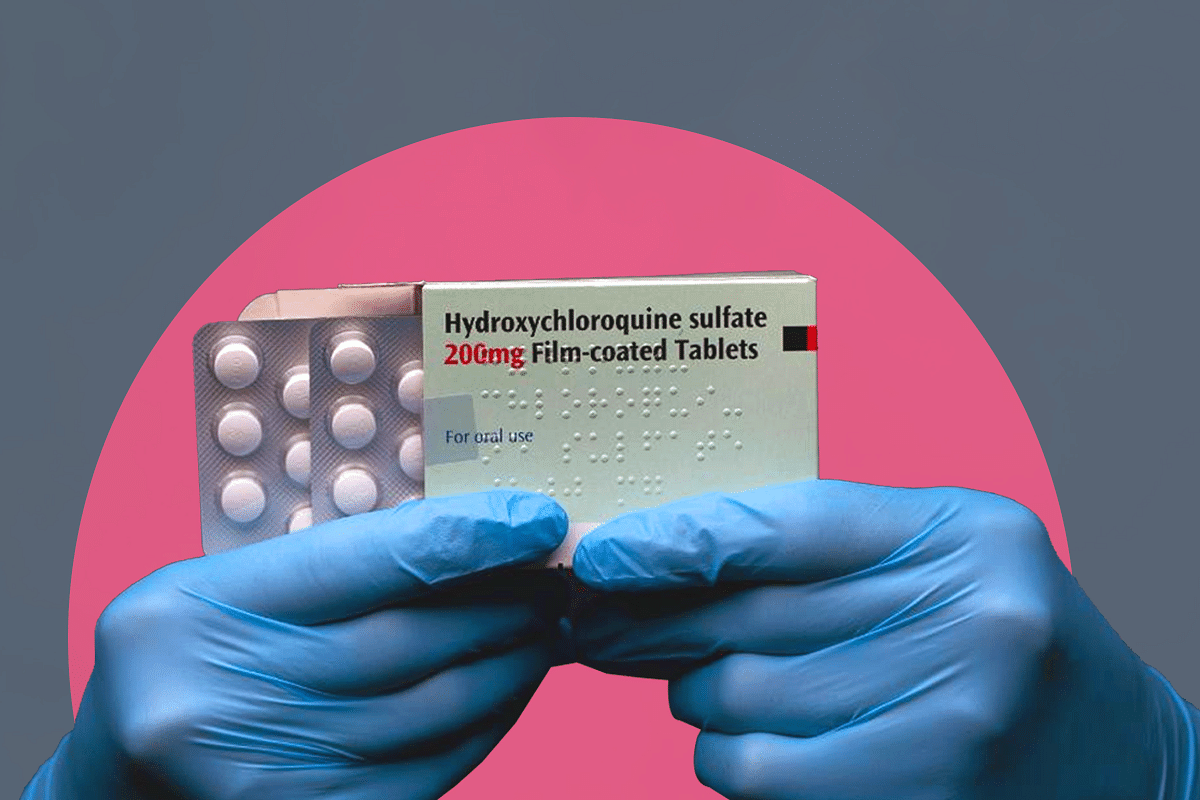News Brief
Explained: Should India Continue Testing Anti-Malarial Drug HCQ For Treating COVID-19 After WHO Moratorium?

Anti-malarial drug hydroxychloroquine
Recently, World Health Organisation (WHO) announced a moratorium on testing the controversial anti-malarial drug hydroxychloroquine (HCQ) for treating COVID-19.
WHO has said that it will temporarily drop HCQ from its global study into experimental coronavirus treatments after safety concerns. On Wednesday, France became the first country to ban hydroxychloroquine as a COVID-19 treatment.
It has now clarified that the moratorium doesn’t imply that India should pause testing the drug. India recommends the drug as a preventive for groups that were at high risk of contracting the infection.
Several countries including United States, Brazil, France have authorised the use of HCQ for this purpose. The drug was also reportedly being taken by US president Donald Trump as a precaution.
Why HCQ was dropped from the Solidarity Trial?
Solidarity Trial is a global clinical trial coordinated by the WHO to test potent drug combinations against the novel coronavirus. HCQ was one of four drug-combinations being tested.
All four, including remdesivir and an HIV combination therapy, have shown varying degrees of promise in fighting against COVID-19 infection.
Under the trials, four hundred hospitals in 35 countries would be comparing the benefits to COVID patients from taking either of them.
The decision to drop HCQ from the clinical trials by WHO was taken after a paper published last week in the Lancet that showed people taking HCQ were at higher risk of death and heart problems.
The study says that in the 96,000 hospitalised SARS-CoV-2 patients in 671 hospitals across six continents, there was no benefit observed from the HCQ.
Should India halt HCQ trials?
The Health ministry’s decision to list HCQ as preventive was based on internal studies and laboratory experiments that showed the drug had anti-viral properties.
“India has so far made the right decision on HCQ and that this decision has been based on evidence,” Preeti Sudan, Secretary, Ministry of Health and Family Welfare, was quoted as saying by The Hindu.
The government late last week extended the use of HCQ for paramilitary and police personnel involved in COVID-19 management, besides direct health care providers for positive patients. It cited three different studies that claimed the benefits.
Many doctors in France and China have reported the drug to be effective in combination with the antibiotic azithromycin.
Reportedly, US National Institutes of Health is also running a clinical trial to establish whether the combination can prevent hospital admissions and death from Covid-19.
Soumya Swaminathan, Chief Scientist at WHO also told The Hindu that WHO is not advising stopping all HCQ trials but has only dropped HCQ from the Solidarity Trial, and that many prophylaxis trials using HCQ are ongoing or about to start.
Meanwhile, the French doctor and professor Didier Raoult who who promoted the use of hydroxychloroquine and chloroquine for coronavirus said on Monday that he stood by the drugs.
He rejected the Lancet study and said “How can a messy study done with ‘big data’ change what we see?...Here we have had 4,000 people go through our hospital, you don’t think I’m going to change because there are people who do ‘big data’, which is a kind of completely delusional fantasy.”
Notably, the Lancet paper was an observational study, not based on a clinical trial designed to test the efficacy of the drugs.
On Tuesday, Director-General of Indian Council of Medical Research Balram Bhargava said that there was evidence that HCQ worked as prophylactic and that several studies on the drug are underway.
“It is difficult to do a randomised trial for a drug that may be working. We’ve got some observational data. A more detailed study will be available soon. We’ve weighed the risks and benefits and concluded that we can’t as of now deny this to our frontline workers battling COVID-19.”
He pointed out that the HCQ had a history of safe use in India against disorders of the immune system.
Also, the drug is inexpensive, off-patent, easily available and produced in large quantities in India which is currently exporting HCQ to 55 countries.
Meanwhile, accusations have been made that the Lancet study is a poor quality work quickly assembled to defame HCQ as the drug was being perceived as a threat to vaccines which would bring more profits to pharma companies.
Support Swarajya's 50 Ground Reports Project & Sponsor A Story
Every general election Swarajya does a 50 ground reports project.
Aimed only at serious readers and those who appreciate the nuances of political undercurrents, the project provides a sense of India's electoral landscape. As you know, these reports are produced after considerable investment of travel, time and effort on the ground.
This time too we've kicked off the project in style and have covered over 30 constituencies already. If you're someone who appreciates such work and have enjoyed our coverage please consider sponsoring a ground report for just Rs 2999 to Rs 19,999 - it goes a long way in helping us produce more quality reportage.
You can also back this project by becoming a subscriber for as little as Rs 999 - so do click on this links and choose a plan that suits you and back us.
Click below to contribute.
Latest